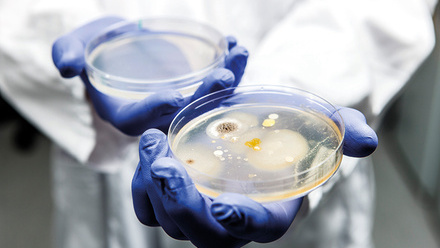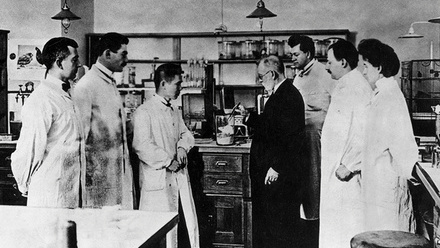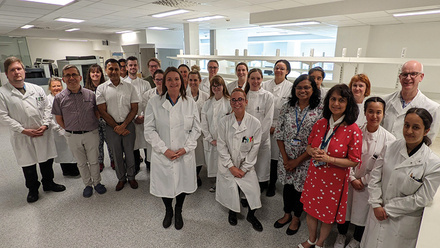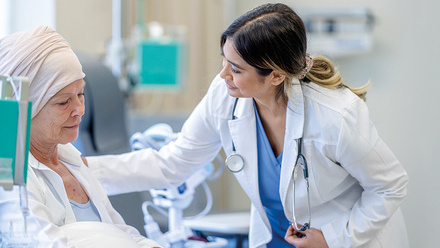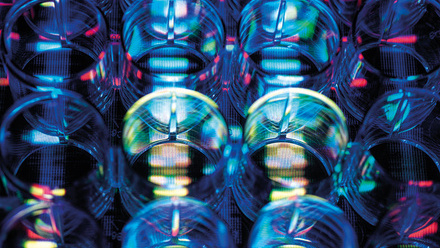My Lab: Oral Pathology
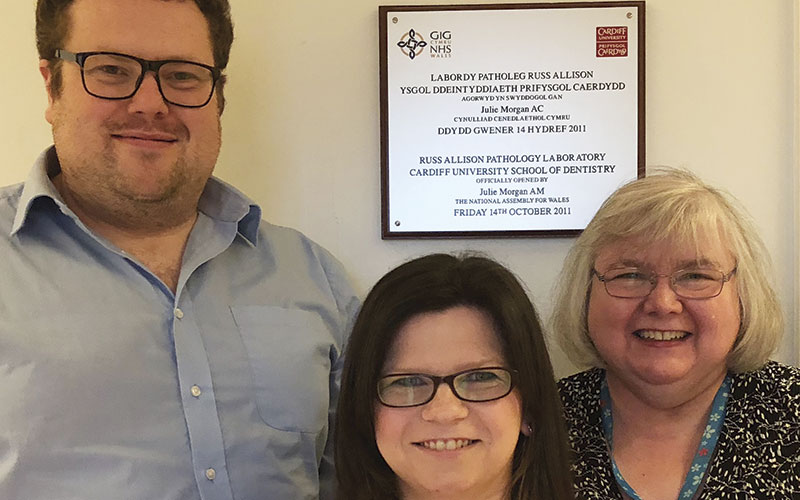
The University Dental Hospital (UDH) is situated at the University Hospital of Wales and is part of Cardiff and Vale University Health Board.
The University Hospital of Wales treats approximately 400,000 patients a year and 100,000 of those are seen at the University Dental Hospital.
The School of Dentistry at Cardiff University and UDH work closely together to provide research, teaching and patient care to undergraduate and post-graduate students and as such is the only one of its kind in Wales. All aspects of dental care are covered, including: oral and maxillofacial surgery, oral medicine, paediatric dentistry, restorative, orthodontics and exam and emergency cover.
Oral pathology is situated in the Russ Allison Pathology Laboratories, which were named after a previous IBMS President who played a significant role in developing the oral pathology service. Oral pathology comprises cellular pathology and microbiology and I cover both services with Sue Wozniak (Specialist Biomedical Scientist, Cellular Pathology) and Dafydd Thomas (Specialist Biomedical Scientist, Oral Microbiology). As we are a specialist lab, we work very closely with our consultant pathologists Dr John Potts and Dr Adam Jones, who are our Oral and Maxillofacial Consultants, and Dr Melanie Wilson, our Oral Microbiology Consultant.
The cellular pathology department receives, on average, between 1,800 and 2,000 specimens a year, which range from small routine biopsies through to complex head and neck cancer resections. We provide a regional service to clinics at UDH, general dental practices, community dental service and district general hospitals in South East Wales, as well as receive requests for specialist opinion throughout the UK. The resections range from floor of mouth, tongue, mandibles to maxillofacial and neck dissections. Specimens such as mandibles take significantly longer to prepare due to additional steps required, such as decalcification.
The oral microbiology lab generally receives in the region of 800 requests annually. The microbiology department provides a highly specialised service geared towards the isolation, identification, and antibiotic sensitivity testing of micro-organisms of the oral cavity. The laboratory typically receives specimens including swabs, aspirates, oral rinses, and imprints cultures. Such specimens are primarily collected from patients who are attending the oral medicine and oral and maxillofacial surgery units. The oral medicine clinic at UDH is one of the few units in the UK that is supported by a diagnostic oral microbiology service. I completely love working in a specialist laboratory such as this, as it allows me to experience a broad range of specialities and techniques and I have been provided with the opportunity to provide public engagement through my role as a STEM ambassador and becoming a member of the Cardiff University programme CITER.

